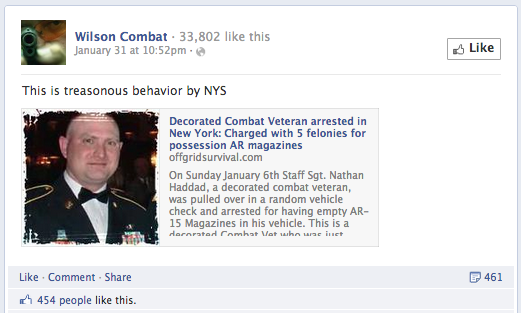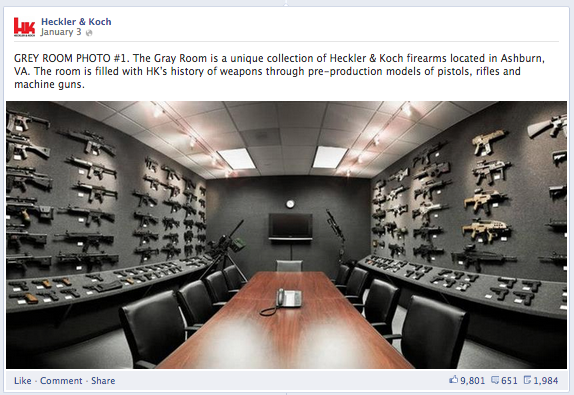As she made her way into a Wilmington, Del., courthouse last week, attorney Jennifer Lublinski saw a man pull out a .45-caliber semiautomatic pistol and start firing. The man, Thomas Matusiewicz, turned the gun on his former daughter-in-law and her friend, then shot two police officers before finally pointing the gun at his own head and pulling the trigger. The whole event lasted just a few minutes but left Matusiewicz and two women dead on the courthouse floor. The two officers took direct hits to their bulletproof vests and survived.

While the shooting was taking place, Lublinski ran back into the courthouse parking lot, hiding at first behind a car and then in a corner. Moments after quiet set in, she took out her smartphone and started tweeting. “I just witnessed my first shooting,” she wrote. “DE chancery court lobby. Multiple down. Police here.” Minutes later, she described the scene to a concerned follower, “I’m okay. Kind of shaken up. Saw shots, people running away, people screaming. 5 people shot.” Over the course of the next hour or so, Lublinski published tweet after tweet, updating her followers on what she and her partner witnessed and reflecting on her own reaction. “I am okay,” she wrote, “Shaking. You expect you will be brave and it turns out you aren’t.”
A woman was shot right in front of my partner.He hid behind our boxes of exhibits on handcart.He says woman will not make it.
— Jennifer S. Lubinski (
jslubinski) <a href="https://twitter.com/jslubinski/status/300973317265973248">February 11, 2013</a></blockquote>jslubinski) February 11, 2013
<blockquote class="twitter-tweet"><p>I am being taken to courthouse.Streets filled with armed officers, men stationed at doors with guns trained</p>— Jennifer S. Lubinski (
You don’t know what you’re going to do when something like this happens.I hid in corner shaking like a baby
— Jennifer S. Lubinski (@jslubinski) February 11, 2013
In addition to live tweeting the shooting’s aftermath, Lublinski also used the moment to attack the National Rifle Association and gun control opponents, singling out the organization and sparring with its supporters while she waited to be interviewed by police. “Where’s the #NRA as I’m hiding in parking lot?” Lublinski wrote at the end of her first tweet, sparking a flood of responses. “How’s that gun free zone working for you?” replied one man named Edward, implying that stricter gun control laws don’t work. “There were multiple officers and army personnel in area,” Lublinski shot back. “How’s that working for you a—hole?”
In an age of smartphones and instantaneous access to social networks, this is how the gun control debate is playing out on social media. It is real time, vicious, course and polarizing. It is emotional, with the shootings in Newtown, Conn., last December still fresh in people’s minds. And, as witnessed in Lublinski’s case, the gun control debate on social media is extremely fragmented.
The loudest voices in the debate seem to be those of common citizens, media personalities and, yes, gun brands, not advocacy organizations. While those groups are not controlling the debate on social media, they are using it for another separate but important use — mobilizing supporters into action.
The Debate Part Of The Debate
I’m curious…if ‘guns don’t kill’ – what else do they do?
— Piers Morgan (@piersmorgan) February 7, 2013
During the month of January, Piers Morgan — who essentially turned his show into a nightly forum on gun control — drew an average of 747,000 viewers, according to Nielsen. As Morgan talked to hundreds of thousands on television though, he spoke to millions on Twitter. His following there, currently more than 3.2 million, outnumbers his television audience by a factor of four. Unabashedly pro-gun control on TV, Morgan is just as vigorous on Twitter, wasting few opportunities to assail those who disagree with him.
Morgan’s massive following — the NRA’s Twitter following of 126,600 is relatively minuscule compared with Morgan’s millions — and passion for the issue, oddly makes him one of the gun debate’s most visible participants on social media. The fact that his following so outnumbers that of advocacy organizations, means that the average social media participant is more likely to see the debate through Morgan’s interactions with his detractors than, say, the NRA’s with a gun-control advocate.

Outside of Morgan, there are plenty of other non-advocacy types making their voices heard on social media, including private companies. Wilson Combat, a gun manufacturer, has taken strong positions on the gun debate on its Facebook page. When one website posted a story of a combat veteran arrested in New York State for possessing AR-15 magazines, for instance, Wilson Combat, which manufactures a style of that weapon, posted the article along with the message, “This is treasonous behavior by NYS.”
Other gun manufactures have been less blunt, but still involved. “In a world of compromise, some don’t. When and why do you refuse to compromise?” wrote Heckler and Koch, another gun manufacturer, on its Facebook page. For many, as you might guess, the answer was gun possession.
The voices aren’t limited to media personalities and corporations with large platforms either. As Jennifer Lublinski found out, a single voice can be amplified too. Many of Lublinski’s tweets were retweeted multiple times, and her first, the one that attacked the NRA, received 190 retweets. Many of those retweeters were followed by thousands themselves, giving Lublinski a moment behind the social media megaphone — and she used it.
In politics, we’re used to seeing debates play out between two parties: Obama vs. Romney, Democrats vs. Republicans, etc. On social media though, the gun battle is not simply NRA vs. gun control. It is multidimensional, with many actors trying to influence public opinion in their own way. If gun control legislation is put up to a vote, politicians will look to opinion polls for guidance and, as more time is spent on social media sites, the discussion there might indeed have an impact.
Mobilizing Through Social Media
Help us make a vote happen – tell your Senators to join us:buff.ly/14Rmsgi #TheyDeserveAVote
— Demand A Plan (@DemandAPlan) February 13, 2013
For advocacy organizations trying to directly sway members of Congress to vote their way, social media can function more as a tool to activate volunteers. Mark Glaze, director of Mayors Against Illegal Guns (MAIG), one of the more powerful gun control advocacy groups in the country, said in a phone interview that for his organization, the heavy lifting is done not via social media, but through its website, demandaplan.org. “We very much want people to come to our website because that’s where we get to talk to people in chunks of bigger than 140 characters,” he said. “It’s where we keep our advertisements; it’s where we keep our policy information.”
To Glaze, social media is valuable in getting people to that site, but not where the battle will be won or lost. Glaze explained that 25 percent of demandaplan.org’s traffic comes from social channels and, once people get to the site, they can use digital tools to engage in “old school” advocacy tactics such as letter writing and phone calls to Congress, which Glaze finds more effective.
“Ultimately, this all has to be for a purpose,” Glaze explained. “We’re using social media to bring pressure and persuasion to bear from real people in ways that are noticeable to members of Congress, and that’s the way you change public policy,” The philosophy has similarities to electoral politics, in which the most effective form of campaigning is human contact with voters. In this case though, there are just a few hundred people eligible to vote. So far, Glaze said, his organization’s digital tools have helped churn out more than 200,000 emails to Congress and tens of thousands of phone calls.
On the other side of the advocacy fight is the NRA. While the NRA did not respond to multiple interview requests, a look through its Twitter feed and Facebook page reveals a similar philosophy to Mayors Against Illegal Guns. The NRA — followed by more people on Twitter and Facebook than any group on either side — posts multiple times a day, sharing NRA friendly news articles and plenty of links to its lobbying arm, the NRA–ILA. Once you reach the NRA–ILA’s website, you’re presented with many ways to get involved via its “Action Center.” Many old-school channels are emphasized there including letter writing, volunteering and, of course, donating.
The Question of Effectiveness
Discussions of gun policy can get ugly quick, but those discussing it on social media may want to be careful to keep their cool. Matthew Lewis, a columnist at The Week who recently wrote about how he felt that an increasingly mean discourse on Twitter was ruining it, said in a phone interview that those being mean spirited might end up hurting their cause. “If you’re trying to win hearts and minds,” Lewis said, “Using Twitter to build relationships with the people you want to persuade would be much more effective than screaming, yelling and being snarky which is really a default position for Twitter.”
If advocates forsake civil discourse, something that the often friendly world of social media tends to value, Lewis said that not only could their efforts backfire, but they could end up hurting the nature of the medium itself. “It makes the world a slightly less good place,” said Lewis, “and it makes Twitter remarkably less relevant than it could be.”
With tensions likely to heat up when gun legislation hits the floor of Congress, the relevance question may very well soon be tested.
Alex Kantrowitz covers the digital marketing side of politics for Forbes.com and PBS MediaShift. His writing has previously appeared in Fortune and the New York Times’ Local Blog. Follow Alex on Twitter at @Kantrowitz.

